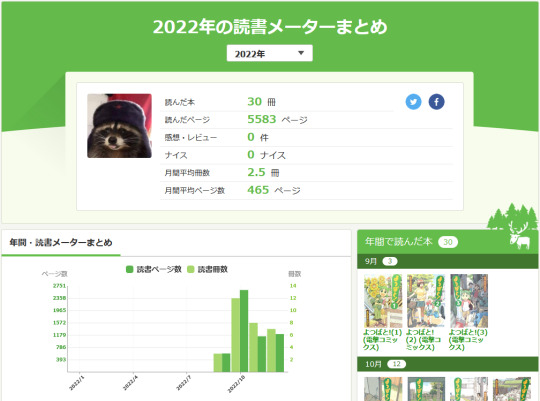Text
A textbook called Grammatical Theory by Stefan Müller just came out, and man, he's dropping some truth bombs!

Furthermore, the claim that first language acquisition is effortless and rapid when compared to second language acquisition is a myth as has been shown by estimations by Klein (1986: 9): if we assume that children hear linguistic utterances for five hours a day (as a conservative estimate), then in the first five years of their lives, they have 9100 hours of linguistic training. But at the age of five, they have still not acquired all complex constructions. In comparison, second-language learners, assuming the necessary motivation, can learn the grammar of a language rather well in a six-week crash course with twelve hours a day (500 hours in total).
And then...

In Chapter 13, it was shown that all the evidence that has previously been brought forward in favor of innate linguistic knowledge is in fact controversial. In some cases, the facts are irrelevant to the discussion and in other cases, they could be explained in other ways. Sometimes, the chains of argumentation are not logically sound or the premises are not supported. In other cases, the argumentation is circular. As a result, the question of whether is innate linguistic knowledge remains unanswered. All theories that presuppose the existence of this kind of knowledge are making very strong assumptions.
In short: Human linguistic abilities aren't magic, and children aren't elves.
In meme form:

4K notes
·
View notes
Text
2022 Japanese Wrap-up + 2023 goals
In 2022, I went from having a lot of disconnected vocabulary and grammar knowledge in japanese to having a real baseline of literacy! 2022 started out with me doing several months of wanikani, before really starting to burn out on doing flashcards around April.
In April and May, I took mostly a break from adding new cards on wanikani to do my first real sustained attempt at immersion: playing どうぶつの森 e+ on the gamecube. I really enjoyed it, but decided I still needed to do some more work before I'd be able to play it comfortably. I was spending about 30 minutes a day on average, just running around doing normal animal crossing things and also making sure to talk to villagers. A lot of them talk in non standard japanese (guliver only talking in katakana was the *worst*, lots of villagers use オイラ, etc), I will go back to this game eventually because it is my favorite animal crossing game.


After that, I decided to go back to doing wanikani more seriously until I hit level 20. By the time I hit 20 in mid september, I was really really burning out on doing flashcards. I felt that a lot of the new vocabulary I was learning was useless to me without context (not sure if I still entirely think this, but wk vocabulary is.... strange sometimes since it is for reinforcing kanji readings and not necessarily by how common words actually are). So, I decided to completely drop wanikani **and** anki sentence mining to focus entirely on doing extensive reading. I joined the wk community forums challenge for "Read Every Day Fall 2022" and really really really enjoyed it.

I read 30 volumes in japanese, 29 manga + one short story, totaling 5583 pages! Word/character count in manga is super high variance, so I wouldn't try to put a hard number on this, but going from literal 0 real reading in 2021 to this in 2022 was a huge huge huge jump.
I read:
よつばと! volumes 1-15
耳をすませば
赤い手袋 (short story)
ホリミヤ volumes 1-6
ハピネス volumes 1-2
からかい上手の高木さん volumes 1-5
and change, I also read some chapters of komi, nagatoro, and call of the night in japanese here and there.
I also re-read the Tae Kim Grammar guide in October, to see if having more reading experience would make any of the stuff in the later chapter stick any better, and it absolutely did!
Definitely was a good year for my japanese. Now, as we're getting closer to 2 years (and god knows how many hours) of me learning, I am actually starting to finally feel like I can *use* the language! Still many areas to improve on, and a lot more time to invest, but the time I spend feels less like grinding now, and more like just doing things I enjoy that happen to be in japanese.
Towards the end of December, I decided to buy a year membership for wanikani again, since it was on sale. I would eventually like to get to level 60 here, because I have noticed the kanji I learned through wanikani I am **way** more comfortable reading than ones I've slowly picked up, but I really don't want that to be my primary goal. Eventually, it will happen, and I've spent the last few weeks cleaning up the lingering reviews that skipping 3.5 months of SRS gives you.
2023 Goals:
For 2023, my main goals are (surprise surprise) reading related!
Finish every volume of manga I currently physically own: This is the main one, I have built up a considerable backlog of reading material while the yen was weak, and I'd like to really work on thinning this out so things don't end up never getting read as I buy more stuff. I have 66 unread volumes of varying difficulty on my shelf, so this should give plenty of reading variety!
Read more things which are pure text: eventually, the goal is to be able to read things at the level I tend to enjoy reading things english (maybe slower, but still), and a lot of that happens to be really dense, academic non-fiction stuff. Manga is great, but it is not that. So this year, I'd like to get into reading children's books, light novels, short stories, and maaaaybe an actual novel, plus get more comfortable reading stuff like wikipedia. I'm starting with the magic tree house series and 夜カフェ, which I've already purchased digitally and done some test readings for. Harder to predict what I'll read like this, but as long as I make some noticeable progress here I'll be happy.
Be prepared to take the JLPT N2 test by December 2023. Maybe this is a bit ambitious, but I think it’s probably doable. Whether I actually decide to sit for the test or not, I’d like to be at a level where I would feel comfortable doing it. Taking N3 and below always felt kind of pointless to me, but N2 and N1 would actually be a cool achievement, even if it doesn't "mean" anything in terms of real proficiency. I have simple goblin brain that sees tangible reward for intangible progress and goes "ooooo shiney"
I probably won't be doing the daily updates here (they do actually take quite a bit of time to write out), but I will be posting my readings and vocabulary I pick up every day on the Wani-Kani Read every day challenge Winter 2023 forum topic!
17 notes
·
View notes
Text
勉強ログ・2022年12月
I kinda fell off on doing the daily posts here, but that absolutely doesn't mean that I wasn't studying!
My goals for December were to continue my manga reading streak, and also to include one NHK easy article per day.


I managed to do both of these fairly easily, I think. 33/31 NHK articles read. ホリミヤ was my main manga of choice, and I read some ハピネス and からかい上手の高木さん while I was traveling and needed something a little bit easier.
By the end of the month, I was doing the NHK articles in about 5 minutes, and chapters of ホリミヤ in about 15 minutes. Amount of words I needed to look up varied greatly depending on content; it occasionally felt hard, but never really overwhelming.
I didn't manage to meet my stretch goal of finishing ホリミヤ before the end of the year, only made it to chapter 45. But this is a series I'd rather take my time with so that's fine. I did little bits of other reading here and there, but did not really track them.
For the month of January, I'm committing to time tracking all of my studying/immersion just so I can get a real picture of how much I'm actually studying. Where does all my time go? Because honestly, I have no idea!
3 notes
·
View notes
Text
If you see this you’re legally obligated to reblog and tag with the book you’re currently reading
232K notes
·
View notes
Text
勉強ログ・12/15
Read:
NHK News Web Easy: 小学校と中学校 発達障害かもしれない子どもが8.8%いる - some rather syntactically complicated sentences in this one, but read through it a few times and then picked it apart in deepl and they mostly make sense to me now.
Good Words:
発達障害 「はったつしょうがい」 ー developmental disorder
かもしれない ー might, possibly
どのくらい ー how long, how much, how far
周りの人「まわりのひと」 ー the people around oneself
ホリミヤ ch 26 + おまけ - given that i’m just now finishing volume 4, finishing this series by the end of the month is looking less and less likely
Good Words:
崩壊 「ほうかい」 ー collapse, breaking down
ウケる ー to find funny, to find humorous (form of 受ける)
居間 「いま」 ー living room
判断 「はんだん」 ー judgement
登校拒否 「とうこうきょひ」 ー truancy
5 notes
·
View notes
Text
129K notes
·
View notes
Audio
Episode 75: Love and fury at the linguistics of emotions
Emotions are a universal part of the human experience, but the specific ways we express them are mediated through language. For example, English uses the one word “love” for several distinct feelings: familial love, romantic love, platonic love, and loving things (I love this ice cream!), whereas Spanish distinguishes lexically between the less intense querer and the stronger amar. Conversely, many Austronesian languages use the same word for the concepts that English would split as “fear” and “surprise”, while many Nakh-Daghestani (Northeast Caucasian) languages use the same word for the cluster that English splits into “fear”, “anxiety”, and “grief”.
In this episode, your hosts Gretchen McCulloch and Lauren Gawne get enthusiastic about the layers of language that are involved in emotions, from how emotion words form different clusters of related meaning in different language families to how the way your face shape changes when you smile affects the pitch of your voice. We also talk about how our understanding of how to talk about emotion changes throughout history and our lifespan, and how bilingual people feel differently about emotional words in their different languages.
Read the transcript here.
Announcements:
Thank you so much for celebrating our 6th anniversary with us! We appreciated all the love and support on social media, and it was great to see you recommending us to other language fans. Thank you to anyone who made an irl recommendation of the podcast, we appreciate you too!
In this month’s bonus episode we get enthusiastic about stylized Oldey Timey English! We talk about contexts in which pseudo-archaic forms get used, from Gretchen’s recent experience with names and titles in a 1492 papal election roleplaying game, to how the language handbook of the Society of Creative Anachronism balances modern-day desires for gender-neutral language with creating historic-feeling titles, and a 1949 academic article cataloguing business names in the New York City phonebook that began with “ye”.
Join us on Patreon now to get access to this and 60+ other bonus episodes, as well as access to the Lingthusiasm Discord server where you can chat with other language nerds.
Here are the links mentioned in the episode:
Emotion semantics show both cultural variation and universal structure
‘Why Doesn’t Ancient Fiction Talk About Feelings?’ - Nautilus article
‘Language Development and Emotional Expression’ by Lois Bloom
‘Alexithymia and levels of processing: Evidence for an overall deficit in remembering emotion words’ from Journal of Research in Personality
Example of Emotion Wheels
‘The Preponderance of Negative Emotion Words in the Emotion Lexicon: A Cross-generational and Cross-linguistic Study’ by Robert W. Schrauf & Julia Sanchez
‘'Stop Doing That, Ia Komu Skazala!’: Language Choice and Emotions in Parent—Child Communication’ by Aneta Pavlenko
Lingthusiasm Episode ‘Making machines learn language - Interview with Janelle Shane’
‘‘Happy talk: Perceptual and acoustic effects of smiling on speech’ by V. C. Tartter
‘Perceptual cues in non-verbal vocal expressions of emotion’ by Disa A Sauter, Frank Eisner, Andrew J Calder, & Sophie K Scott
‘On the Differences in Prosodic Features of Emotional Expressions in Japanese Speech according to the Degree of the Emotion’ by Yasuki Hashizawa, Shoichi Takeda, Muhd Dzulkhiflee Hamzah, Ghen Ohyama
‘Acoustic-phonetic properties of smiling revised – measurements on a natural video corpus’ by Helen Barthel & Hugo Quené
‘The voices of anger and disgust: Acoustic correlates in three languages’ by Marc D. Pell & Areej Alasseri
‘Relevant Angry Affect Slows Response Time To Commands’ by Aleah Combs
‘Beyond lexical meaning: The effect of emotional prosody on spoken word recognition’ by Seung Kyung Kim & Meghan Sumner
You can listen to this episode via Lingthusiasm.com, Soundcloud, RSS, Apple Podcasts/iTunes, Spotify, YouTube, or wherever you get your podcasts. You can also download an mp3 via the Soundcloud page for offline listening. To receive an email whenever a new episode drops, sign up for the Lingthusiasm mailing list.
You can help keep Lingthusiasm advertising-free by supporting our Patreon. Being a patron gives you access to bonus content, our Discord server, and other perks.
Lingthusiasm is on Facebook, Tumblr, Instagram, Pinterest, and Twitter.
Email us at contact [at] lingthusiasm [dot] com
Gretchen is on Twitter as @GretchenAMcC and blogs at All Things Linguistic.
Lauren is on Twitter as @superlinguo and blogs at Superlinguo.
Lingthusiasm is created by Gretchen McCulloch and Lauren Gawne. Our senior producer is Claire Gawne, our production editor is Sarah Dopierala, and our production assistant is Martha Tsutsui Billins. Our music is ‘Ancient City’ by The Triangles.
100 notes
·
View notes
Text
勉強ログ・12/14
Read:
NHK News Web Easy: 「アニメソングの帝王」 歌手の水木一郎さんが亡くなる - : (
Good Words:
がん ー cancer
帝王 「ていおう」 ー monarch, emperor
ホリミヤ chapter 25 - most of this chapter was taken up by the characters try to do a tongue twister and badly failing. It was a variation on this: 【早口言葉ナビ】赤パジャマ黄パジャマ茶パジャマ|Japanese Tongue Twisters|Hayakuchi Kotoba| - YouTube if you want to try it out yourself. I’m really bad at it too, don’t worry 宮村君.
Good Words:
呟く「つぶやく」 ー to grumble (also to tweet, like post on twitter)
国語 「こくご」 ー native language
1 note
·
View note
Text
勉強ログ・12/13
Read:
NHK News Web Easy 「今年の漢字」は「戦」 - I saw a video of the reveal on twitter yesterday but had absolutely no idea what kanji it was supposed to be. Figured there’d be some NHK article about it today and was correct thankfully lmao.
Good Words:
表す 「あらわす」 ー to represent, to signify
テロ事件 「てろじけん」 ー terrorist attack
ホリミヤ ch 24 - I hadn’t timed myself reading a chapter in a while and was kind of curious what my speed was like these days. This felt like a fairly normal density/length chapter and I read it in just over 13 minutes. So my speed is definitely improving from when I started! I think my average よつばと! chapter was around 25 minutes when I was starting out, and those were also a bit less dense.
Good Words:
得意 「とくい」 ー one’s specialty, one’s strength
月とスッポン 「つきとすっぽん」 ー expression: the moon and the turtle; two things that are superficially similar but actually different. In the English version they use “the beauty and the beast” which feels a little more directly cruel than this, but probably close enough. It was still pretty hurtful to the “turtle” here.
付き添い 「つきそい」 ー attendant
Listened/Watched:
History of Japan Podcast (Isaac Meyer) episode 64
1 note
·
View note
Text
i always get a late start
when the suns going down
and the traffic's thinning out
and the glare is hard to take
i wish the west texas highway
was a mobius strip
i could ride it out forever

Better get comfortable.
4K notes
·
View notes
Text
勉強ログ・12/12
Read:
NHK News Web Easy: 今まであまり値段が変わらなかった卵が高くなっている - I was planning on starting a japanese stardew valley save soon, this is a nice kick starter on some farming vocabulary
Good Words:
鍋料理 「なべりょうり」 ー hot pot cooking
攻撃 「こうげき」 ー attack, assault (here military)
にわとり ー chicken
餌 「えさ」 ー animal feed
とうもろこし ー corn, maize
もやし ー bean sprouts
豆腐 「とうふ」 ー tofu. idk how i’ve never seen this kanji before, I eat tofu almost literally every day
ホリミヤ ch 23
Good Words:
年頃 「としごろ」 ー approximate age, appropriate age
食器 「しょうき」 ー tableware
強引 「ごういん」 ー pushy, overbearing
鼓動 「こどう」 ー beat, pulsation, throbbing
Discord/Internet browsing:
鯖 「さば」 (mackerel) can be used to mean “server” like an online server.
Watched/Listened:
傷物語2- definitely not my favorite entry in the series so far, was also just way too fast/dense for even passive listening.
Good Words:
傷物 「きずもの」 ー defective article, damaged goods
健闘を祈る 「けんとうをいのる」 ー to wish someone good luck
History of Japan Podcast (Isaac Meyer) Episode 63
15 notes
·
View notes
Text
勉強ログ ・12/9 - 12/11
Was out of town for the weekend, but still managed to get a good bit of reading in. A month or so ago when I was still reading からかい上手の高木さん regularly on my kindle, I decided to save the rest of it for when I was traveling and just wanted something easy to read. Definitely ended up being a good play; I don't think i could've read ホリミヤ in my car while waiting for stuff. Still managed to read at least one chapter of manga and my NHK article each day though: the streak continues!
Read:
ホリミヤ chapter 22 -
Good Words:
浮気 「うわき」 ー affair, infidelity
誤解 「ごかい」 ー misunderstanding
理不尽 「りふじん」 ー unreasonable, outrageous
からかい上手の高木さん vol 5 -
Good Words:
見舞い 「みまい」 ー visiting ill or distressed people, get-well gifts
案 「あん」 ー idea; plan
無心 「むしん」 ー free from obstructive thoughts (Buddhism)
交換 「こうかん」ー exchange, switching
てっきり ー surely, without doubt
統べる 「すべる」ー to rule over, to command
風向き 「かぜむき」ー wind direction (both physical and allegorical)
恐怖 「きょうふ」ー fear, terror
星座占い 「せいざうらない」ー sun sign astrology
NHK News Web Easy: 今年いちばんすばらしい車は軽自動車の大きさの電気自動車 1 -
Good Words:
専門家 「せんもんか」 ー expert, specialist
賞 「しょう」 ー prize, award
軽自動車 「けいじどうしゃ」 ー light vehicle, kei car
激しく 「はげしく」 ー violent, extreme (here, of 競争)
NHK News Web Easy: 岡山城の天守閣を10万円で借りて忘年会を開く-
Good Words:
天守閣 「てんしゅかく」 ー castle tower
借りる 「かりる」 ー to rent (new usage to me, i’ve only ever seen borrow i think)
NHK News Web Easy: 法隆寺 仏像の1年のほこりを落とす「��身拭い」 -
Good Words:
世界遺産 「せかいいさん」 ー world heritage site
お坊さん 「おぼうさん」 ー buddhist priest, monk
ほこり ー dust
丁寧 「ていねい」 ー polite, civil
1 note
·
View note
Text
勉強ログ ・ 12/8
Read:
NHK News Web Easy: 「今年の一皿」は「冷凍グルメ」 - some considerably lighter fare today.
Good Words:
冷凍 「れいとう」 ー refrigeration, cold storage
自動販売機 「じどうはんばいき」 ー お金を入れると、自動的に品物を出して物を売る装置
装置 「そうち」 ー equipment, device, apparatus
捨てる 「すてる」 ー to throw something away
新型 「しんがた」 ー new type, new strain (新型コロナウイルス, almost surprised it took this long to see this)
ホリミヤ ch 21
Good Words:
卑怯 「ひきょう」 ー cowardly
痩せる 「やせる」 ー to lose weight
満腹 「まんぷく」 ー full stomach
組む 「くむ」 ー to link, to cross (here, 腕. looks like same phrase can mean both crossing one’s own arms and linking arms with another person)
Quit your Band! Notes from the Japanese Underground (Ian Martin) 188 -> 244 (end) - sometimes a messy book, but probably any attempt to put a complete narrative onto the history of subcultures is doomed to be a little messy. Martin admits that he's conveniently left out some bands of historical significance which he simply doesn't care for, and some areas with their own music scenes that he isn't familiar enough with, but ends with a nice call to action: "Don't like it? write your own book" (240). Which, fundamentally, was what he was trying to do with this book. He says from the beginning he wanted this to be a starting point for discussing music in Japan, and not the final say. It's a nice sentiment and I look forward to listening to more of the bands he's mentioned here.
Listened/Watched:
History of Japan Podcast (Isaac Meyer) episode 60
8 notes
·
View notes
Text
勉強ログ ・ 12/7
Behold the glory that is Souta's original design from HERO's webcomic. Truly, majestic.

Read:
NHK News Web Easy: 保育士3人を逮捕 国は日本中の保育園を調べることを考える - oh. wow. yeah this is kinda fucked up aint it. some words i was not expecting to learn today
Good Words:
国 「くに」 ー the national government (new usage to me)
保育士 「ほいくし」 ー nursery school teacher
逮捕 「たいほ」 ー arrest
逆さ 「さかさ」 ー inverted, upside-down
疑い 「うたがい」 ー doubt, suspicion
脅し 「おどし」 ー threat
世話 「せわ」 ー care, looking after
ホリミヤ ch 20 - aaaaaaaaaaaaaaaaaa (finished volume 3 finally)
Good Words:
限り 「かぎり」 ー as long as
涙腺 「るいせん」 ー tear gland
緩む 「ゆるむ」 ー to become less tense, to let one’s guard down
摂る 「とる」 ー form of 取る, to take (here, medicine)
結構まえから 「けっこうまえから」 ー for quite some time, for quite a while
Some Twitter Browsing Words:
雪だるま 「ゆきだるま」 ー snow man (snow daruma gaa that’s so cute
Watched/Listened
堀さんと宮村君 ova 6 - no subs, but I feel like I understood most of what people were saying/doing. There were some subtle differences between how this part plays out vs in the other anime version that I think I like a little better.
History of Japan Podcast (Isaac Meyer) Episode 59
1 note
·
View note
Text
勉強ログ ・ 12/6
Read:
NHK News Web Easy: すばらしい秋田犬を選ぶ大会 170匹ぐらいが集まる - cute doggies
Good Words:
天然記念物 「てんねんきねんぶつ」 ー protected species
保存会 「ほぞんかい」 ー preservation society
増やし 「ふやし」 ー 多くする
年齢 「ねんれい」 ー age; years
雄 「おす」 ー male (animal/plant)
雌 「めす」 ー female (animal/plant)
イジらないで、長瀞さん ch 118 - forgot s2 was starting so soon! also a good ch.
Good Words:
臨時 「りんじ」 ー temporary, provisional
軍団 「ぐんだん」 ー army
視姦 「しかん」 ー oogling, staring (lecherously)
今更 「いまさら」 ー now (when it is already far too late)
威嚇 「いかく」 ー threat, intimidation
ホリミヤ ch 19
Good Words:
躊躇 「ちゅうちょ」 ー hesitation
暴力的 「ぼうりょくてき」 ー violence
Japanese Slang Review November 2022
Listened/Watched:
History of Japan Podcast (Isaac Meyer) Episode 58
2 notes
·
View notes
Text
勉強ログ ・ 12/5
Dug up a bunch of new research papers to read today but didn't end up actually reading any of them, oh well.
Read:
NHK News Web Easy: 中村哲さんが亡くなって3年東京の大使館で多くの人が祈る
Good Words:
乾いた 「かわいた」 ー dry; parched
支配 「しぱい」 ー rule, domination
について ー concerning, regarding
Billboard JAPAN、新チャート“ニコニコ VOCALOID SONGS TOP20”をスタート - big news! Lots of 会社 words but I made it through.
Good Words:
動画配信 「どうがはいしん」 ー video streaming
における ー in, at (上における)
再生 「さいせい」 ー views (of a video)
登録商標 「どうろくしょうひょう」 ー registered trademark
ホリミヤ chapter 18 - some word look-ups but all old words.
4 notes
·
View notes


